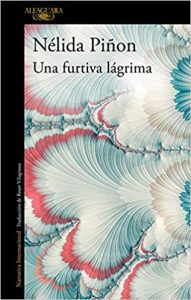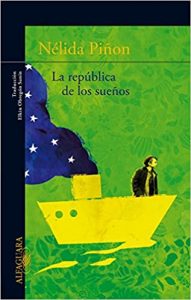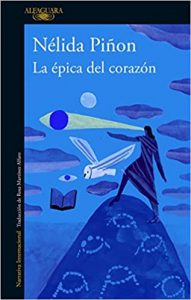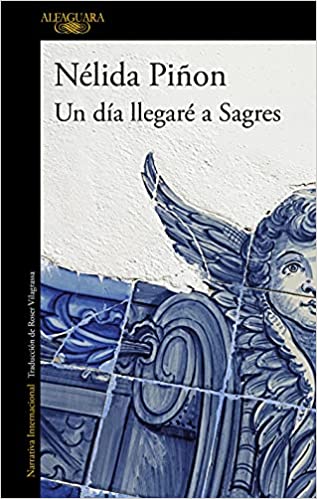Brazilian with Galician roots, Nelida Pinon it is one of the brightest feathers in the current narrative landscape of the Amazon country. Heir to the endless legacy of his compatriot Clarice Lispector and surely inspiration from new generations of female writers who carry the literary baton of the country, such as Ana Paula Maya for example.
Nélida Piñón's bibliography composes that habitual dualism of every narrator committed to his world. On the one hand the abundant fiction of Piñón, but on the other an essayistic aspect in which the author also turns, projecting her thoughts on the future of our days.
In both spaces, Nélida squanders that point of sincerity to an open grave. A sincerity converted into realism for the novels (and into touching verisimilitude for its characters) or into an undoubted interest in leaving that point of sanity (and defense of essential rights) in a thought that is increasingly less focused on the world's remedies and more towards spurious interests.
Top 3 recommended books by Nélida Piñón
A furtive tear
Nothing is more passionately sincere and, therefore, beautiful than the declaration of the writer's motives. Telling the reason for writing is exposing oneself as a ecce homo to the opinion of the world. The final will that led you to write remains in writing. Something that in most cases is not only lyrical but also fed up and restless searching.
A furtive tear is the luminous, intimate and singular diary of one of the most important writers of Latin American literature. In this collage Impressionist, formed by the most lucid reflections and fragments of an unstoppable intelligence, Nélida Piñón composes a self-portrait of her personal history, her family and her roots.
Meditations on literature, the craft of writing, the Portuguese language or world history are naturally mixed with an analysis of herself, her condition as a woman, her condition as a writer and as a Brazilian. This wealth of approaches and attempts are, deep down, access routes to a unique and diverse personality; After all, Nélida Piñón herself affirms about herself: "I am multiple."
The republic of dreams
The idea of a country contains most of its benefits in the feeling of sharing the intangible. In the notion that one from here and another from there, but that far away they have that something in common that unites. Nationalisms, increasingly fixed on the terroir and absolute homogeneity, are certainly scary because of how phobic they entail. The republic of dreams it is the Republic of Brazil, the place where all human hopes can find fulfillment.
Madruga and Venancio were born with the century. They met on the English ship that moved them from Vigo to Rio de Janeiro in the distant year of 1913. They were barely a few boys when they left behind the misery and helplessness of their native Galicia, to sail behind a dream, heading for paradises overseas.
Madruga will conquer Brazil, building industries, businesses, and farms. But it will get lost on the way. Venancio, on the other hand, will keep his condition as a dreamer intact: he will be the one who cries on behalf of Madruga, he will be the true repository of his forbidden feelings.
En The republic of dreams, made of emotions, of essential words, Nélida Piñón shakes the reader and transmits the bittersweet flavor, of triumph and frustration, of one of the few countries in the world where the epic survives.
The epic of the heart
At the time I reviewed the novel Of cattle and men by the Brazilian writer Ana Paula Maia. It is curious that shortly after I stopped at another novelty by another author from Brazil. In this case it is Nélida Piñón, and her book The epic of the heart.
It is true that international recognition corresponds more to the second, but it is also true that in both can be found an Amazonian exuberance of language and dialogues, a kind of geographical and linguistic correspondence.
Probably Nelida Pinon be a reference for Ana Paula. Nélida, the veteran, wise and prestigious writer who is over eighty compared to a young author from 1977. But of course, this is a free interpretation, the result of an easy association of ideas...
But it would be like that because without a doubt Nélida is a master at what she does. From a task of literary introspection, he is always capable of raising general dilemmas, morally, politically, and socially. The drift of society is the theme par excellence.
The epic of the heart starts from Nélida's closest environment, from her Rio de Janeiro, from Latin America, from old customs and new trends, from impossible miscellanies and from renunciations and forgetting of the positive values that could have existed in the past to insert new current values, accommodating, fleeting, capricious.
A novel that is an analysis, a presentation towards slow meditation. A joy with which to recover thought as a vital reflection and not just something occasional, almost always material, commercial. And there lies the epic of the heart, in being able to feel with the pause of the heart, or with the uncontrollable impulse of the true in the face of so much fallacy. Without a doubt an interesting novel and a constructive reading in these current times.
Other interesting books by Nélida Piñón ...
One day I will arrive in Sagres
A declaration of intent is a promise, especially with oneself. One can consider reaching any point in geography as that final intention in an initiatory transition in one's own knowledge. It could be Finisterre or Sagres, places where the world seems to have been consumed by the ocean. Non plus ultra, there is nothing beyond your journey until the end of your days. Shake your own ashes into the sea and be reborn, once again...
Born in the XNUMXth century in a village in northern Portugal, the son of a prostitute accused of witchcraft and an unknown father, the young Mateus grew up with his grandfather Vicente, but when he died, he began a journey south , in search of utopia, but also after the vocation of greatness of a poor country animated by the desire for freedom.
One day I will arrive in Sagres In short, it tells the story of Portugal, of a civilization in perpetual motion through the life of an apparently insignificant individual, a reckless peasant, but perhaps one who is so at a time when what is most lacking is recklessness.





1 comment on «The 3 best books of Nélida Piñón»